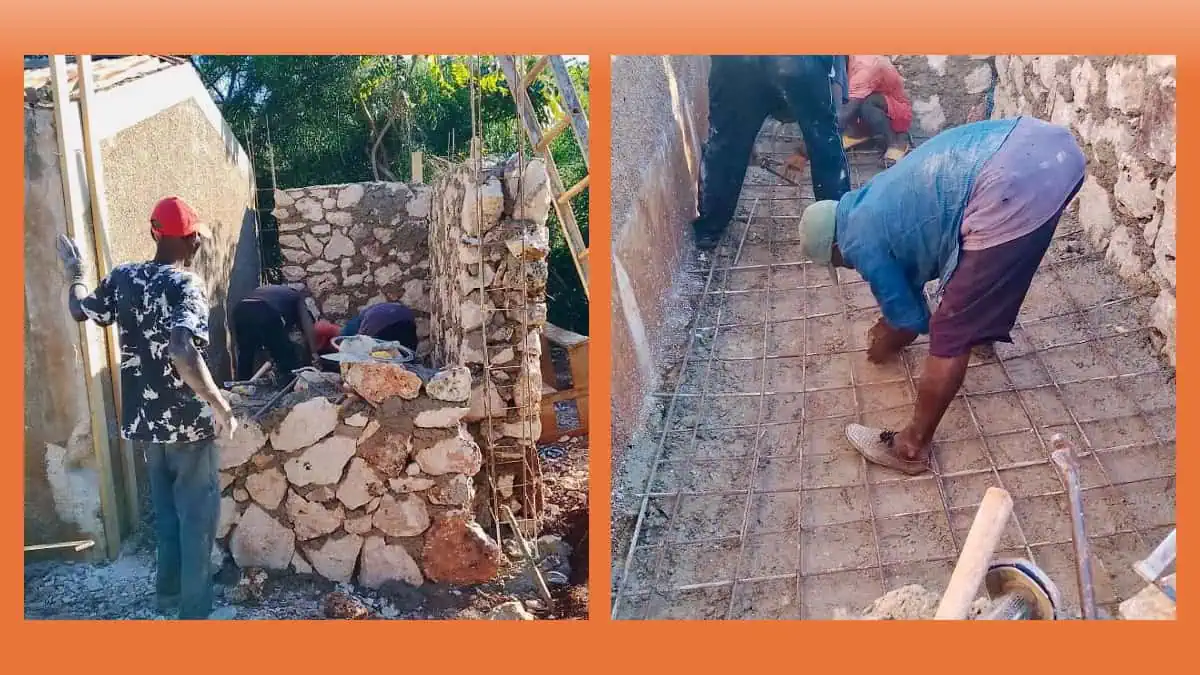
February 20, 2012
by John Engle, as told to Jonathan Chan
Sometimes, you can’t help but wonder if we’re making a difference that reaches all the way to the core of the problem. Some days it can be unclear. Other days you see the difference in action, right in front of you, and that’s what helps you keep on.
A few weeks ago, I was at a community meeting being held on the land of the Children’s Academy. Many of our meetings utilize the Open Space method, which has a segment where people propose topics, which become small group discussions. People participate in the topics that interest them. We had well over two hundred people there, from ages two to eighty two, all talking about their vision for the new school, the role of a school in the development of a community, the type of social business the community would establish to help create jobs and provide a sustainable source of revenue for the school, etc. When the breakouts began, I played the role of a “butterfly”, someone who goes from group to group, just taking the conversation in. As I walked around, I noticed a dynamic that I usually see in Haiti: one person in each group, the one with the most education –usually a man – would dominate the discussion, leaving very little room for others to speak up, especially the children.
This is one of the cultural norms I’ve struggled with since coming to Haiti 20 years ago. From the early days of French colonialism, Haitians have lived under oppressive rulers who lead through violence and fear, and this type of leadership is now prevalent in every aspect of society. My colleagues and I have always worked to respect the autonomy of Haitian organizations and institutions, but this broken model of leadership meant that we were seeing practices that we didn’t agree with. Students being hit for answering a question wrong, leaders acting like dictators, pastors not listening to the concerns of their congregation.
I was being reminded over and over again of this brokenness in Haiti’s leadership, as I walked from group to group. That is, until I saw Fertude. Fertude is a colleague in our network who’s worked to help Haitian leaders break free from these oppressive cultural norms. As part of the Civic Empowerment Project, she led over 100 grassroots leaders and educators through a 3 month training course in civic engagement and participatory leadership. Here, in her breakout group, I could see the direct impact of her work. Every single person was speaking out and weighing in. No one was excluded, no matter what their occupation was, or how much education they had attained. And in particular, it was the children who will benefit from Children’s Academy that were being encouraged to use their voice. The children, who will go on to become teachers, leaders, pastors, and entrepreneurs. The children, who will change Haiti for the better.
It’s for moments like this that we’ve devoted a lot of time and effort, working with our Haitian colleagues to develop practices that help people develop skills in communication and collaboration; tools and methods that help people to break free from oppressive cultural norms. The reach of these programs is growing; we’ve held trainings at hundreds of churches and schools across the country for thousands of teachers, leaders, and pastors. Many other partners are taking a keen interest in our work, seeing how vital it is to Haiti’s future.
But there’s still a long way to go. That’s why we’re so grateful for the support of all those who have contributed to this work over the years. Without you, we wouldn’t even have made it this far. Together, let’s see how much further we can go.
2 Responses
I love that you are working with the Haitian people in a role that is deeply rooted in service to others, and yet, you are able to maintain strong opinions and convictions about what is right and what is wrong as it relates to advancement beyond cultural hurdles. In addition to the glimpses of hope that we can see through people like Fertude, this blog post is refreshing for the honest struggle that you so openly display.
Thanks for all that you do, John, to work alongside the people of Haiti in the way that you do. You are a kind and genuine soul. I have seen it many times in person and I see it in your entries here. Stay encouraged. Your work is vital and the results are worthwhile.
Thanks for sharing this story, John. I appreciate the insights about Haitian culture,band also can imagine somewhat similar leadership dynamics in many communities where I’ve worked in North America and Europe. We all have much to learn about listening and learning!